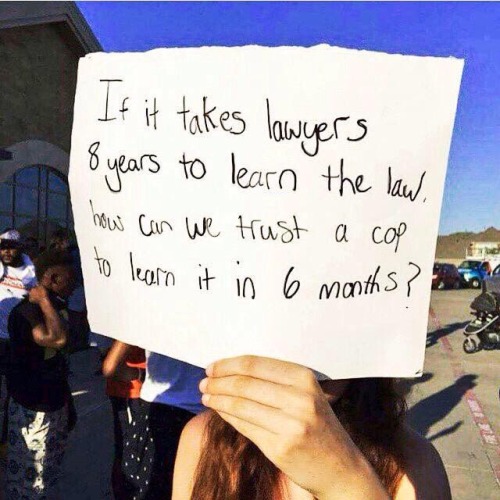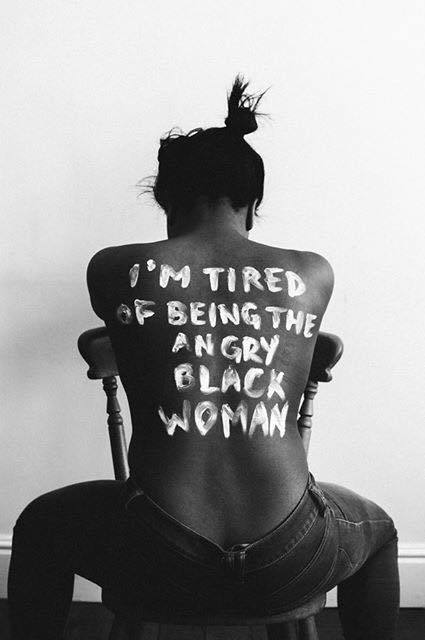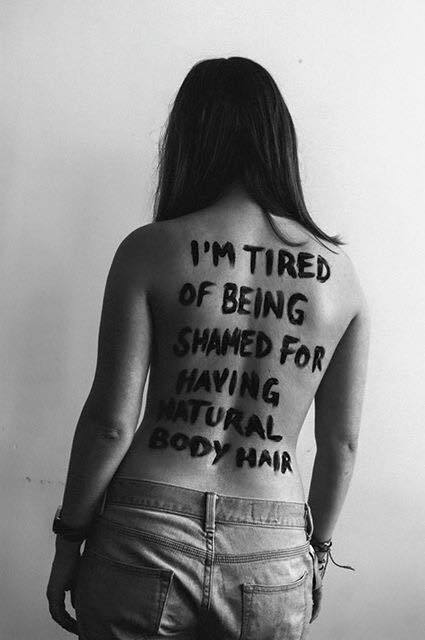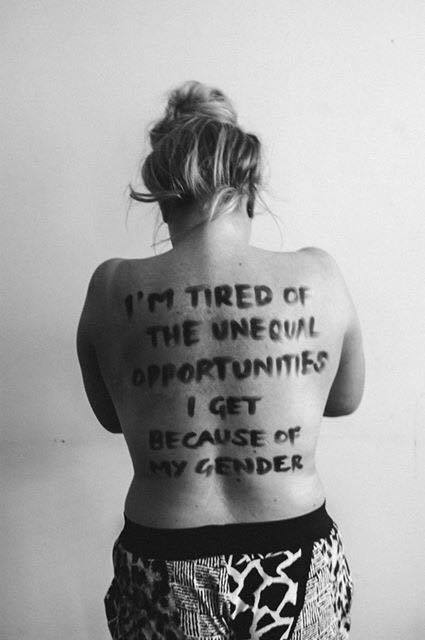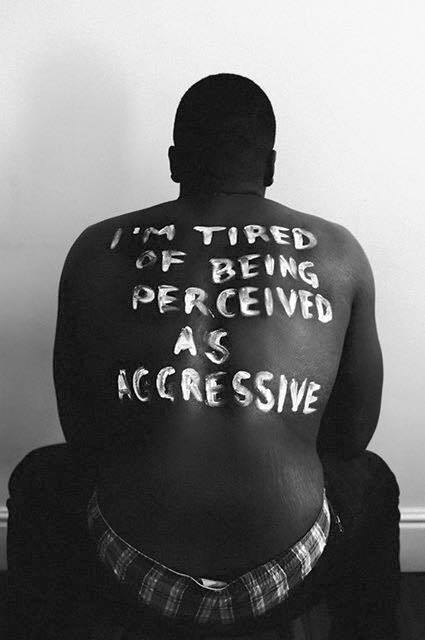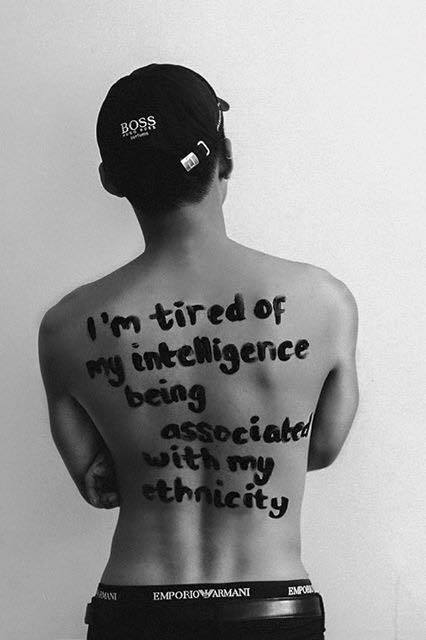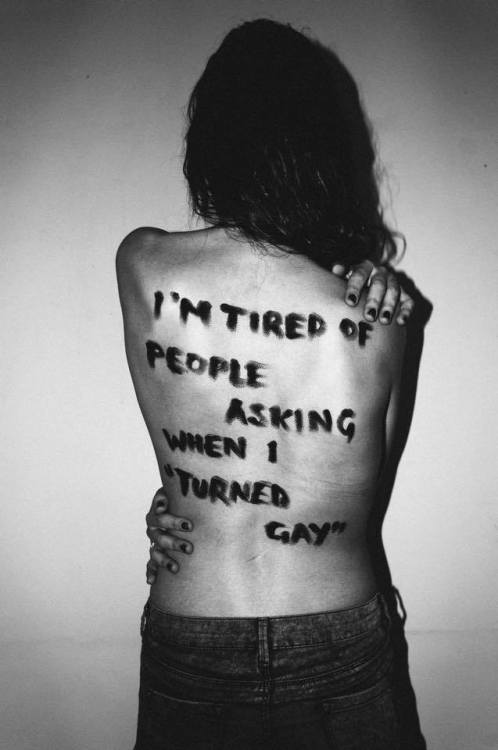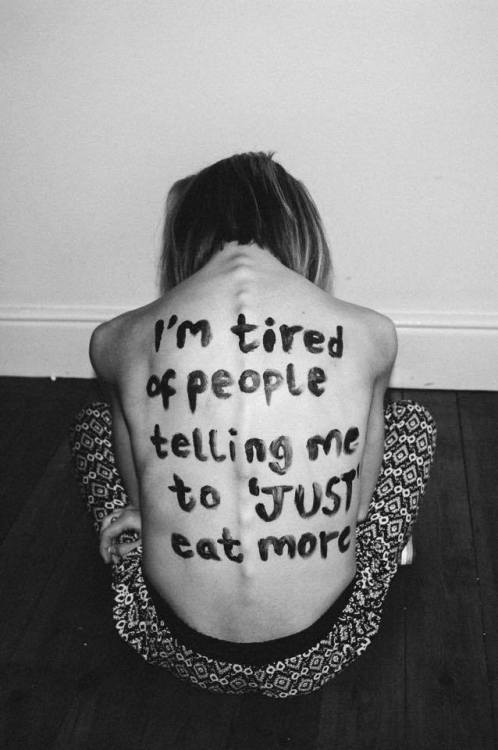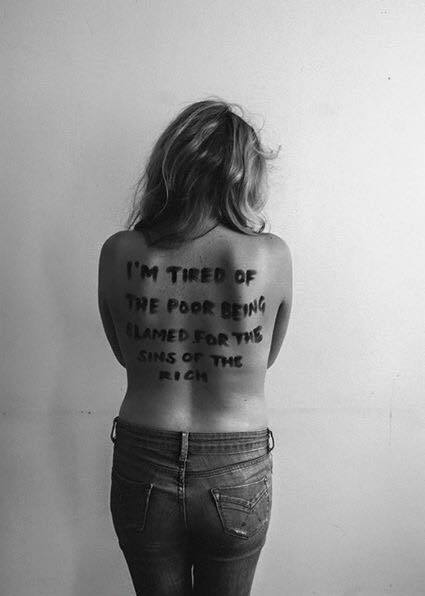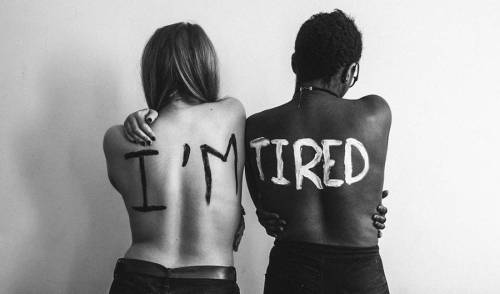#social justice

New tattoo ^-^
(With deepest apologies to Lin Manuel Miranda)
You say The price of my love’s not a price that you’re willing to pay
You cry As you kneel for the flag ‘cause the cops won’t stop shooting you guys
Why so sad Remember we made an arrangement when you came as slaves
Now you’re making me mad Remember despite our estrangement I’m The Man
You’ll stand up, soon you’ll see
You’ll remember you truly owe me
You’ll stand up, time will tell
You’ll remember we gave you jobs as well
Oceans rise
Empire’s Fall
We’ve abused your people through it all
And when push comes to shove
We will kill your friends and family
To remind you to show your love

I’d pay to watch that.

I mean seriously. How hard is it to serve the people AND finding love?

The face of depression.
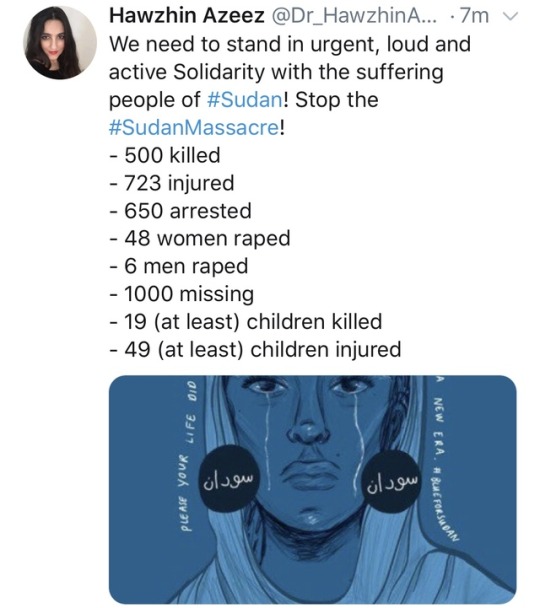
Stand in solidarity with Sudan!

Free Kurdistan. Free Palestine.

Break the silence over Sudan.

This is just…despicable.

Accurate.

They are complicit in our oppression.

Intersectionality is non negotiable.
Listen up, Tumblr. This is important.
Since February I’ve been working with a team of social workers, faith communities, and child care professionals to create an organization called Skookum Kids that would care for children in their first 72 hours of foster care.
There’s a huge need for this nationwide, but here in my home of Bellingham Washington it’s particularly acute.
When children enter the foster care system, social workers often struggle to find a place for children to stay. A sustainable solution to this problem has already been created in next-door Everett, Washington. A facility called Safe Place receives children as they enter foster care, taking pressure off social workers and giving the children entering foster care a much softer landing. Through divine appointment I met the director of Safe Place in Everett. And when I expressed interest in building an extension in Bellingham, he was incredibly supportive and encouraging. He shared both his business plan and a huge amount of hard-earned wisdom. We are starting now with the benefit of his experience and his full support.
I am optimistic that we could be caring for children as early as the first quarter of 2015, and I’d love to have your support. Our biggest needs right now are visibility and donations.
You can give through our crowdfunding campaign, and choose from a variety of perks only available to our startup supporters.
And I’d love your help spreading the word through email, facebook, twitter, smoke signal, carrier pidgeon—any means necessary. We need your help!
For convenience, feel free to use these links to share quickly:
(sorry, no link for carrier pigeons)
If you’d like to stay connected with Skookum Kids as it develops, you can subscribe to receive email updates, and I’ll be sure to keep you informed as things develop.
Thank you in advance,
Ray Deck III
Friendly Reminder that the Black Lives Matter Organization is not the entire Black Lives Matter Movement. Just like there are several pro-life organizations and not one defines the entire movement. You can support the BLM Movement without having to support the BLM organization.
listen. if you’re thinking about starting a fight with someone because you think trigger warnings are bad, or a symptom of the newly “oversensitive generation” or whatever. just like. nope. just stop. take a walk. clear your head. think about it. do trigger warnings affect you negatively at all, in any way, ever? no? no. do they help people who need them? yes. even if you’ve had shit happen to you and you’re totally ok and don’t need warnings at all and other people should just – yep. they do. they help people. ok. ok now shhhhhhhhhhhhhhhhhhhhhhhh
I was introduced to the concept of hermeneutical injustice a couple days ago and it’s been blowing my mind. I’ve been struggling for a while to reconcile consent and asexuality, specifically in the context where asexuality isn’t known. If asexuality isn’t an option, how can someone’s consent be truly free? Anagnori’s post on Asexuality and Consent Issues sums it up well:
Consent can only be freely given when all people involved are mentally, physically, socially and financially able to say “No.” An imbalance of power or of information limits the options that one of the partners can take, and it casts doubt on the voluntariness of the relationship. […] How many asexual people consent to sex that they would not have consented to if they grew up knowing that asexuality was a good, normal, and healthy way to be? How many people are pressured or manipulated into sex because they believe that they need to be fixed?
Queenie’s post on Mapping the grey area of sexual experience: consent, compulsory sexuality, and sex normativity shows how prevalent these experiences are:
I’ve had countless conversations with other aces who felt pressured into sex before they discovered asexuality, not necessarily because their partner was standing over them saying, “You must have sex with me or the heavens will smite you with thunderbolts” (although that has happened to some people), but because they couldn’t think of a “good” reason why they shouldn’t want to have sex. They loved their partner. They had birth control. They hadn’t experienced trauma. What was stopping them? Why didn’t they want it?
I think part of the problem is that there’s this idea that people’s natural state is wanting sex and wanting to consent to sex. […] You don’t need a reason to consent; ”you need a *reason* to opt out of sex rather than a reason to opt-in in the first place.“
This is a personal topic for me. I wouldn’t have consented to a lot of things in a previous relationship had I known that asexuality existed – had I known that asexuality is “a good, normal, and healthy way to be” – and there’s a lot of hurt in that for me. I was blamed and blamed myself for not being sexually attracted to my partner; after realizing that I’m asexual, I was able to stop blaming myself for not feeling sexual attraction. But then I became angry. I was angry at my ex for pushing sex. I was angry at the abysmal state of sex ed. I was angry at compulsory sexuality. And I was angry at myself. Why hadn’t I had the courage and confidence to say no?
I blamed my ex for a while – why did he push it when I said no so many times before? why did he enjoy it when I was clearly disinterested? – but that didn’t feel quite right. I said yes multiple times, and people can’t read minds. So then I was back to blaming myself. Perhaps if I truly felt so strongly that I didn’t want to have sex, I would have said no every time. But that doesn’t encapsulate the pressure and feeling of brokenness that I felt – the unspoken social norm that because I didn’t have a “good” reason to “deny” him, saying yes was a given. The problem is that I was left with no way to explain my hurt. On the surface, it shouldn’t have been a big deal: he said yes, I said yes, therefore everything was consensual. The problem is, had I known about asexuality, I would have said no. It felt like a wrong had occurred, even though there was no one to blame. And that is hermeneutical injustice.
Coined by Miranda Fricker in her book, Epistemic Injustice: Power and the Ethics of Knowing, hermeneutical injustice is “the injustice of having some significant area of one’s social experience obscured from collective understanding owing to a structural identity prejudice in the collective hermeneutical resource.” twin_me’s introduction to epistemic justice explains it well:
Hermeneutical injustice is scary because of the word “hermeneutical.” What we need to know is that “hermeneutical” just means “having to do with interpreting things” – and in our case, “having to do with interpreting our experiences.” The foundational idea is fairly straightforward: having certain concepts helps us interpret our experiences. (Imagine trying to interpret the experience of anger or jealously or being “in the zone” without having a name or concept for it). But, how is this injustice? The answer to this question lies in the fact that a lot of experiences never become concepts that everyone learns. In fact, the concepts that everyone learns are often the concepts of people who are doing pretty well in society – not marginalized people. So, roughly, hermeneutical injustice happens when the reason that a relevant concept doesn’t become part of the collective consciousness is because the concept interprets an experience that is felt primarily by a marginalized group. Because [there] is no concept for the injustice the person is feeling, the person can’t express, understand, or know it.
Fricker discusses a few case studies, the central case being the story of a woman, Wendy Sanford, who had severe depression after the birth of her first child. She blamed herself for her depression, and her husband blamed her as well. A friend convinced her to go to a workshop on women’s medical and sexual health, where one of the small groups she was in started talking about postpartum depression. Suddenly, she was able to make sense of her experience. Just knowing that she was experiencing a real phenomenon that other people experience changed her life. Even though many people experienced postpartum depression, it wasn’t talked about, and it wasn’t in the collective consciousness.
The parallel between Wendy’s revelation about postpartum depression and an asexual person’s revelation about asexuality is clear, particularly when the asexual person is in a relationship with a non-ace person. Fricker writes, “the primary harm of hermeneutical injustice consists in a situated hermeneutical inequality: the concrete situation is such that the subject is rendered unable to make communicatively intelligible something which it is particularly in his or her interests to be able to render intelligible.” In sexual situations, an asexual is left without hermeneutical resources to interpret their feelings. The collective hermeneutical lacuna around asexuality – or to go one step further, the lacuna around asexual feelings in general, i.e. lack of sexual attraction without a socially prescribed reason – harms the asexual person’s ability to consent. Learning about asexuality is therefore not only a hermeneutical breakthrough, but an overcoming of epistemic injustice.
Asexual invisibility is harmful in more ways than specific situations of sexual consent, too. Fricker asks, “Is hermeneutical injustice sometimes so damaging that it cramps the very development of self?” She gives an example using Edmund White’s autobiographical novel, A Boy’s Own Story. As he describes his love for a friend, the collective hermeneutical resources classifying homosexuality as a “sickness” or an “adolescent stage to pass through” conflicts with his own feelings. His sense of self is being formed by collective understandings of homosexuality, which are more powerful than his singular personal experiences. “The primary harm of hermeneutical injustice, then, is to be understood not only in terms of the subject’s being unfairly disadvantaged by some collective hermeneutical lacuna, but also in terms of the very construction (constitutive and/or causal) of selfhood. In certain social contexts, hermeneutical injustice can mean that someone is socially constituted as, and perhaps even caused to be, something they are not, and which it is against their interests to be seen to be.”
Similarly, an asexual’s sense of self is formed by collective understandings of sexuality, leading to feelings of brokenness, abnormality, and isolation. When the collective hermeneutical resources construct sexuality as default, there is no way develop a healthy asexual selfhood. Moreover, asexuals are socially constituted as sexual where, particularly in intimate and physical relationships, it is against their interests to be seen as such. We see the harm in this played out again in issues of consent. The collective understandings of sexuality are more powerful than the singular personal experiences of asexuals, and an asexual person doesn’t have the courage and confidence backed by hermeneutical resources to say that their feelings and experiences are valid and must be respected by their partner.
When you find yourself in a situation in which you seem to be the only one to feel the dissonance between received understanding and your own intimated sense of a given experience, it tends to knock your faith in your own ability to make sense of the world, or at least the relevant region of the world. […] hermeneutical injustice not only brings secondary practical disadvantages, it also brings secondary epistemic disadvantages [… that] stem most basically from the subject’s loss of epistemic confidence. The various ways in which loss of epistemic confidence might hinder one’s epistemic career are, to reiterate, that it can cause literal loss of knowledge, that it may prevent one from gaining new knowledge, and more generally, that it is likely to stop one gaining certain important epistemic virtues, such as intellectual courage.
When I learned about asexuality, it was like the floodgates opened. Suddenly there was a term for my experiences and an entire community built around discussing them. Backed by this collective knowledge, I’m much more confident in my self, my boundaries, and my relationships. However, I was still left with pain and bitterness about my previous relationship; I didn’t have a model or framework in which to analyze a situation where lack of knowledge – for which no one was accountable – would’ve affected consent.
Now, we can talk about these consent situations as hermeneutical injustice. It encapsulates the visceral feeling that something wrong has occurred, yet no one involved in the situation is directly responsible. Fricker concludes, “hermeneutical injustice is not inflicted by any agent, but rather is caused by a feature of the collective hermeneutical resource – a one-off blind spot (in incidental cases), or (in systematic cases) a lacuna generated by a structural identity prejudice in the hermeneutical repertoire. Consequently, questions of culpability do not arise in the same way. None the less, they do arise, for the phenomenon should inspire us to ask what sorts of hearers we should try to be in a society in which there are likely to be speakers whose attempts to make communicative sense of their experiences are unjustly hindered.”
When people say that sexuality is a personal matter and no one should care what people do (or don’t do) in bed, it means that the collective hermeneutical lacuna around non-heterosexualities will never be filled. When people are confused on why some asexuals feel the need to “come out”, I can now explain hermeneutical injustice. As Anagnori concludes:
This is why asexual awareness is so important. We need everyone in the world to know that we exist, not only so that we can be respected, but so that millions of other asexual people can have the power to make informed, confident choices about their own sexuality. We need asexual people everywhere to know that they are not broken, abnormal or wrong for what they are feeling, and that they have the right to reject sex at any time, for any reason. When asexual people can confidently say “No,” then they will also be able to say “Yes” with more certainty and weight, and they will have the option of forming sexual relationships that respect their asexuality and bring them happiness.
In her article, Queenie goes on to state that the simple knowledge of the existence of asexuality might not be enough to counter compulsory sexuality, i.e. aces aren’t “suddenly free from pressure and expectations” after realizing they’re asexual. I completely agree. To analyze other consent situations, there’s Emily Nagoski’s model of consent (with addendums made by other people, as mentioned in the first paragraph of Queenie’s post). I’m also particularly fond of Lisa’s non-binary power model of consent. However, for the very specific case of an asexual person consenting to sex when either partner had no knowledge or understanding of asexuality, I believe that hermeneutical injustice is the best interpretation of the situation.
in no language in any era before has ally ever meant
someone who silently nods along w whatever you say
& never points out when yr wrong
or doin wrong things
& if you think it does
you are nobody i want for an ally
& no ally of mine
bc what yr thinking of is maybe a puppy
or rly a stuffed animal
bc even the most loyal hound will get in yr face when yr goin a dangerous direction
stories are full of that sort of thing
“loyal animal companion saves day for clueless human owners!!!”
but an ALLY shld be someone you see as yr EQUAL
& cohort in fightin a good fight
the word you are MEANING is not ally
not even “fangirl / fanboy” either
but “lackey”
or maybe
“serf”
These stunning photos capture just how exhausting micro aggressions can be
Paula Akpan and Harriet Evans have launched the “I’m Tired” project to highlight the impact common microaggressions and stereotypes many face on a daily basis. By symbolically and literally carrying the aggressions on their backs, Apkan and Evans hope to help both the subjects and everyone else.
Post link


